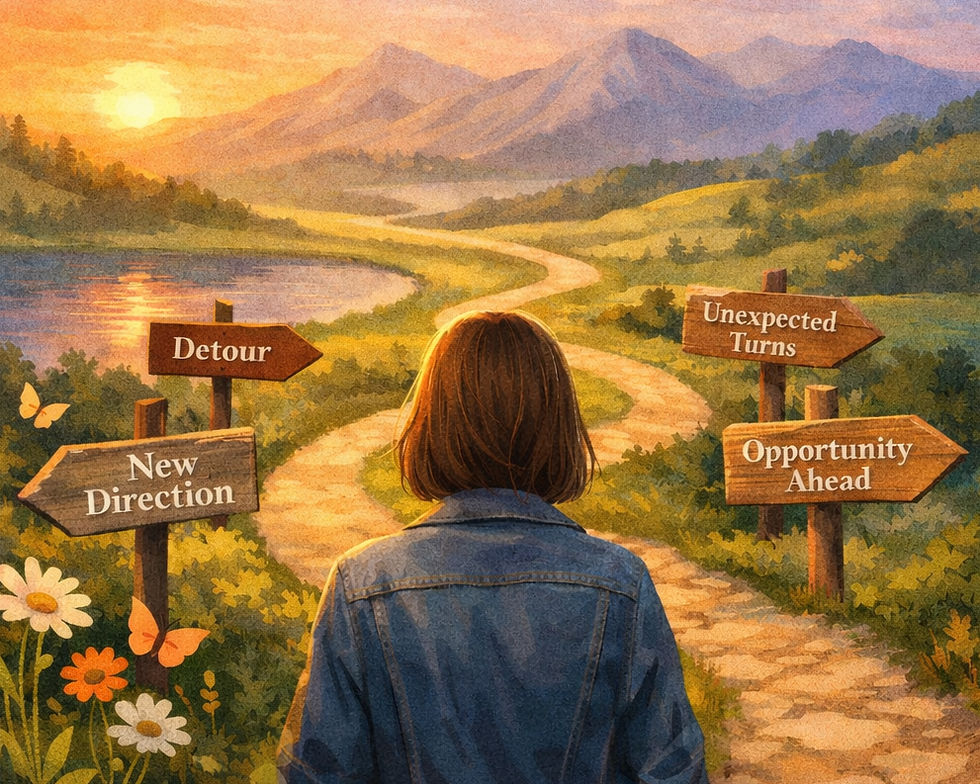The Woolly Mammoth Theory Of Things
- Thomas Wood LCSW

- Jul 23, 2025
- 3 min read
Updated: Nov 25, 2025
Every now and then, life presses in on us with a particular weight. Something unsettles the air around us, something like, “What’s going to happen with the job?” or “Why hasn’t she texted me back?” or “What if this pain in my side is something serious?” That soft panic, that creeping uncertainty—we all know it.
Dr. Skip Heverly, a neurologist in the Midwest, shared something recently that I haven’t stopped thinking about. He said that when we find ourselves caught in existential angst—when the unknown feels loud and our heads are full of questions without answers—it can help to remember the people who came before us. Your parents. Your grandparents. Great-uncles. Distant cousins. Or people whose names you don’t even know, people buried in the local cemetery down the road.
They all lived lives full of struggle and worry, just like we do. They had fights with their spouses. They wondered whether they were doing enough. They fretted over taxes, illnesses, crops, wars. They hoped to be understood, hoped to be remembered. But now? We can barely imagine what they once feared. We may not even remember their names. Their most pressing concerns have vanished.
Dr. Heverly brings in a surprising twist: Consider the woolly mammoth. This great, shaggy creature was once the colossus of the Ice Age. Towering, powerful, unforgettable—so large and mighty that it must have seemed eternal. Its footprints left deep marks in frozen earth. It was everything we think of when we say, “Majestic.”
And now? They’re gone. We’ve found some bones, a few tusks, possibly some DNA frozen in the tundra. A child might recognize one from a cartoon, but otherwise, even the woolly mammoth, the most famous of extinct animals, is mostly forgotten.
If that’s true of the mammoth, what about us? What about this moment, right now, where your chest tightens with anxiety and you can’t stop checking your phone? What about that awful thing you said in a meeting or to your partner last week? Or the growing fear you feel when the economy wobbles, or when someone you love is suddenly quiet? What if those things, too, are just… soft noises? Whispers in the wind?
Now, before we go too far down the road of “nothing matters”, let me say this: You do matter. The people who love you matter. The little rituals that make your life yours – your morning coffee, your dog’s tail thumping when you walk in the door, your laugh in the kitchen—they all matter. But the fear? The anxiety? The ever-churning mental to-do list of What Might Go Wrong? That’s the part we might be able to set down.
What Dr. Heverly is gently offering is perspective. Not nihilism. Not hopelessness. Just a chance to step back and breathe. Because it is comforting, in a strange way, to remember that the noise in our heads is mostly just that—noise. It will fade. It always does. A hundred years from now, someone might look at a photo of you, smiling on a beach, and say, “She was beautiful.” But they won’t know what she worried about. They won’t remember that he checked the door three times before bed because of some old fear that never quite went away. They won’t recall the sleepless nights, the job interviews, the heartbreak. In time, even the heaviest of our concerns are carried off like dandelion fluff.
And if that’s true, then maybe we don’t have to hold them so tightly. Maybe we can place them gently beside us. Maybe we can look up, see the sky, and say, “Right. I’m still here.” You're still here. You’re still breathing. And in this moment, right now, you are enough. Not because you fixed everything. Not because everyone likes you. Not because the worst didn’t happen. But because you’re human. You’re part of this whole strange and beautiful chain of people who worried and laughed and tried. You’re part of the story.
You, like the woolly mammoth, will disappear into the mists of time. So will all your cares. So why not let them go now, and enjoy the sunshine streaming in through the window, or the rain pattering down on the windshield, or wherever you are and whoever is around you? It is, after all, all we really have.
I’ll close with a few lines from Max Ehrmann’s Desiderata:
You are a child of the universe, no less than the trees and the stars; you have a right to be here. And whether or not it is clear to you, no doubt the universe is unfolding as it should.
Here if you need me.
Thomas Wood, LCSW




Comments